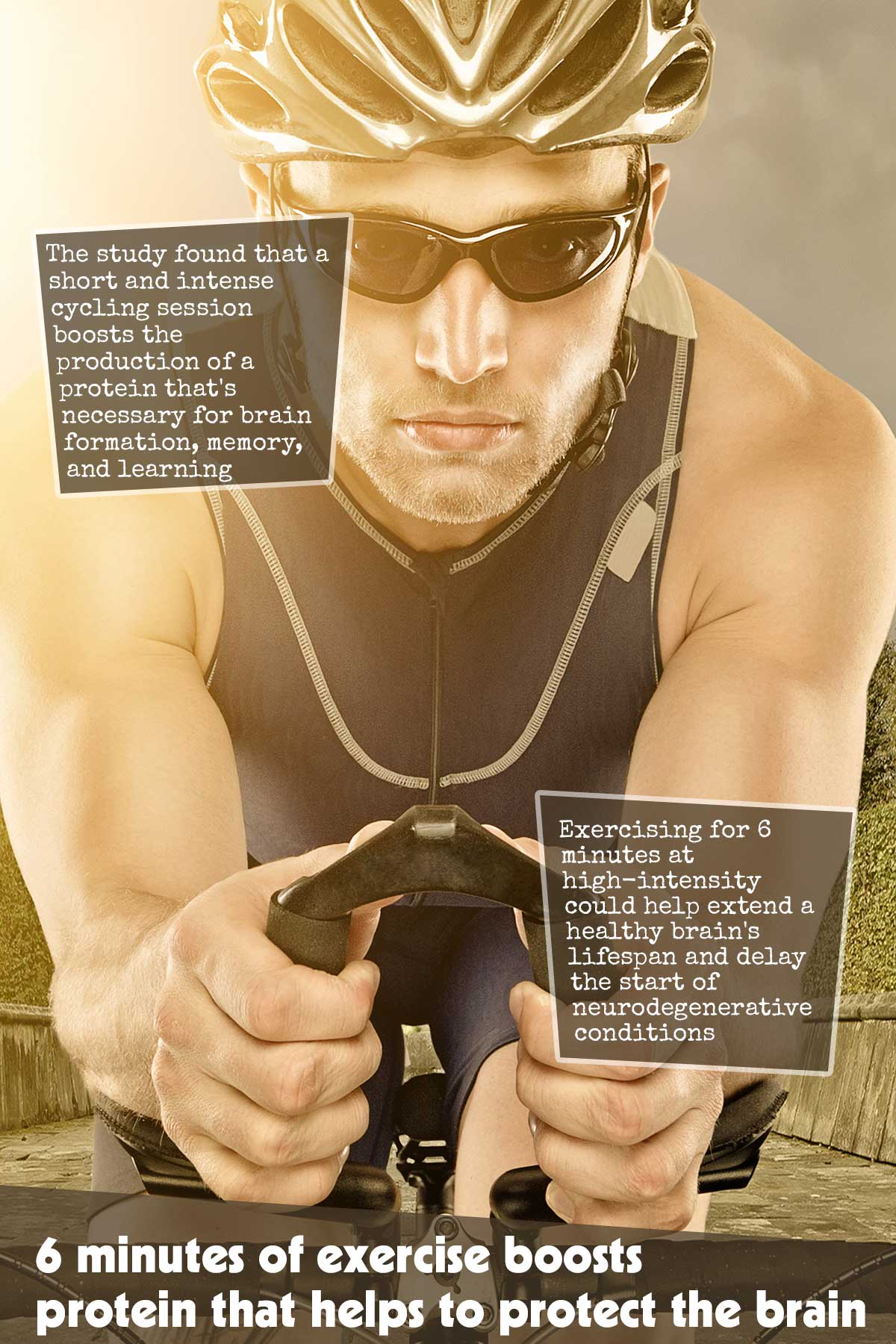According to a study, exercising for 6 minutes at high-intensity could help extend a healthy brain’s lifespan and delay the start of neurodegenerative conditions, which include Parkinson’s and Alzheimer’s disease.1✅ JOURNAL REFERENCE DOI: 10.1113/JP283582
Twelve physically active individuals, 6 males, and 6 females between the ages of 18 and 56 years participated in the study.
The study found that a short and intense cycling session boosts the production of a protein that’s necessary for brain formation, memory, and learning, and could help protect the brain from cognitive decline.
The protein known as brain-derived neurotrophic factor promotes the brain’s ability to create new pathways and connections, and neuron survival.
Animal research has found that increasing BDNF availability improves learning, stimulates memory formation and storage, and generally increases cognitive performance.
The researchers wanted to explore ways to increase BDNF naturally to assist with healthy aging.
To analyze the effect of exercise and fasting on the production of BDNF the following factors were compared to examine the interactive and isolated effects:
- 20 hours of fasting,
- 90 minutes of light exercise (low-intensity cycling),
- A 6-minute session of high-intensity exercise (vigorous cycling),
- A combination of exercise and fasting.
The researchers discovered brief and vigorous exercise to be the most effective method for increasing BDNF in comparison to 1 day of fasting in combination either with or without an extended light exercise session.
BDNF increased by 4 to 5 times more in comparison to fasting which resulted in no BDNF concentration change or prolonged activity which resulted in a BDNF concentration increase.
The reason for these differences is unknown and more studies are required to shed light on the mechanisms involved. A theory is associated with the cerebral substrate switch and the metabolism of glucose, the main fuel source of the brain.
When the brain changes its preferred fuel source for another source to make sure the energy demands of the body are fulfilled is the cerebral substrate switch, such as metabolizing lactate instead of glucose while exercising. The transition of the brain from glucose to lactate consumption creates pathways that lead to increased BDNF blood levels.
The BDNF increase observed while exercising could be a result of the elevated number of platelets that store huge amounts of BDNF. The blood circulating platelet concentration is much more affected by exercise compared to fasting and exercise increases it by 20%.




